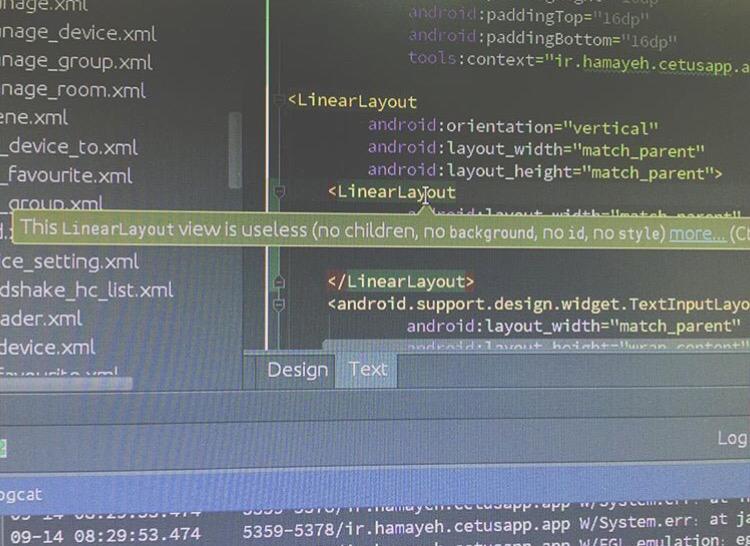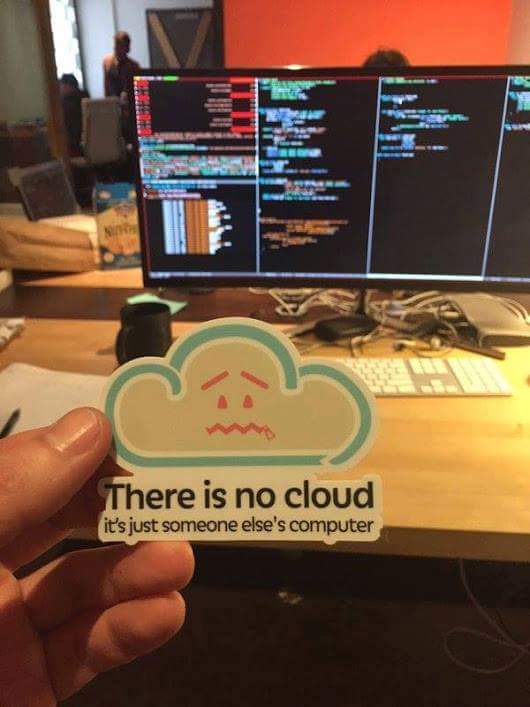Details
-
AboutCS student from Hungary, trainee @BalaBit
-
Skillsjs, html, angular, frontend
-
Locationhungary
-
Github
Joined devRant on 10/29/2016
Join devRant
Do all the things like
++ or -- rants, post your own rants, comment on others' rants and build your customized dev avatar
Sign Up
Pipeless API

From the creators of devRant, Pipeless lets you power real-time personalized recommendations and activity feeds using a simple API
Learn More
-
Most used lie you tell to client: -
Client: “Could you make the software do XYZ?”
Programmer: “No.”
What the programmer really wants to say:
“It’s software. Of course we could do it. But:
it would take a very long time,you can’t afford it,we can’t sell it to anyone else because it’s a terrible idea,by the time we finish it, you won’t want it anymore.”
“No” is just easier to say and is less insulting, especially when the client has a dozen of these great ideas.undefined and bla bla bla bla lie joke fun client programmer fuck i can not think of more tags. fuck13 -
First year at uni, during c++ basis.
The professor has just finished explaining the while cycle.
Professor: We want the code to print all numbers from 0 to 40 using a counter. How would you do?
Classmate puts up his hand: we do 40 if statements and when we reach the 40th one we stop.
Professor: *face palm*9 -
When your boss asks for a web application that has drag and drop, resize, popup, fade inand out, dynamic styling and mobile compatibility but must work on IE8
You feel like:
Mission: Go to the moon
Tools: Broom's stick
Yeah i'll just pretend to be a witch and fly away7 -
LET'S LEARN ANGULAR2
* look for some good tutorial *
* download atom-typescript *
* type "ng new demo" in console"
1185 errors.
FINISHED LEARNING ANGULAR221 -
If you need to learn/teach object orientation, these are my approaches (I hate that classic "car" example):
1) Keep in mind games like Warcraft, Starcraft, Civilization, Age of Empires (yes, I am old school). They are a good example of having classes to use, instantiating objects (creatures) and putting them to work together. As in a real system.
2) Think of your program as an office that has a job to do, or a factory that has something to deliver. Classes are the roles/jobs and objects are the workers/employees. They don't need to be complex, but their purpose must be really (really, really) well defined. Just like in a real office / factory.
3) Even better (or crazier), see your classes and objects as real beings, digital creatures in a abstract world, and yourself as a kind of god, who creates species (define classes) with wisdom. Give life when it is the time for them to come into the world (instantiate object) and kill them when they are done with their mission (dispose an object). Give them behavior, logic, conditions to work with, situations where they take action, and when they don't. Make them kinda "smart". Build them able to make decisions and take actions based on conditions. Give them life. Think on your program as an ecossystem. There must be balance, connection, species must be well defined and creatures must work together to achieve a common objective. Don't just throw code and pray for it to run. Plan it.
-----
When I talk about my classes like they are real beings, and programs as mini-worlds, some people say I am crazy, some others say that's passion.
It is both! @__@3 -
!rant
After over 20 years as a Software Engineer, Architect, and Manager, I want to pass along some unsolicited advice to junior developers either because I grew through it, or I've had to deal with developers who behaved poorly:
1) Your ego will hurt you FAR more than your junior coding skills. Nobody expects you to be the best early in your career, so don't act like you are.
2) Working independently is a must. It's okay to ask questions, but ask sparingly. Remember, mid and senior level guys need to focus just as much as you do, so before interrupting them, exhaust your resources (Google, Stack Overflow, books, etc..)
3) Working code != good code. You are an author. Write your code so that it can be read. Accept criticism that may seem trivial such as renaming a variable or method. If someone is suggesting it, it's because they didn't know what it did without further investigation.
4) Ask for peer reviews and LISTEN to the critique. Even after 20+ years, I send my code to more junior developers and often get good corrections sent back. (remember the ego thing from tip #1?) Even if they have no critiques for me, sometimes they will see a technique I used and learn from that. Peer reviews are win-win-win.
5) When in doubt, do NOT BS your way out. Refer to someone who knows, or offer to get back to them. Often times, persons other than engineers will take what you said as gospel. If that later turns out to be wrong, a bunch of people will have to get involved to clean up the expectations.
6) Slow down in order to speed up. Always start a task by thinking about the very high level use cases, then slowly work through your logic to achieve that. Rushing to complete, even for senior engineers, usually means less-than-ideal code that somebody will have to maintain.
7) Write documentation, always! Even if your company doesn't take documentation seriously, other engineers will remember how well documented your code is, and they will appreciate you for it/think of you next time that sweet job opens up.
8) Good code is important, but good impressions are better. I have code that is the most embarrassing crap ever still in production to this day. People don't think of me as "that shitty developer who wrote that ugly ass code that one time a decade ago," They think of me as "that developer who was fun to work with and busted his ass." Because of that, I've never been unemployed for more than a day. It's critical to have a good network and good references.
9) Don't shy away from the unknown. It's easy to hope somebody else picks up that task that you don't understand, but you wont learn it if they do. The daunting, unknown tasks are the most rewarding to complete (and trust me, other devs will notice.)
10) Learning is up to you. I can't tell you the number of engineers I passed on hiring because their answer to what they know about PHP7 was: "Nothing. I haven't learned it yet because my current company is still using PHP5." This is YOUR craft. It's not up to your employer to keep you relevant in the job market, it's up to YOU. You don't always need to be a pro at the latest and greatest, but at least read the changelog. Stay abreast of current technology, security threats, etc...
These are just a few quick tips from my experience. Others may chime in with theirs, and some may dispute mine. I wish you all fruitful careers!227 -
Lost my iPhone last night😭 - looked all over but no luck - last chance the gas station - called and the owner said he found a phone with devRant sticker on the back. I still was not sure as lots of devRant members in NY but yes it turned out to be mine. Nice!
And the best news is the gas station owner told his dev son about devRant! So my temporary loss may change his sons life. Sometimes things are just meant to be. 😀 12
12

















